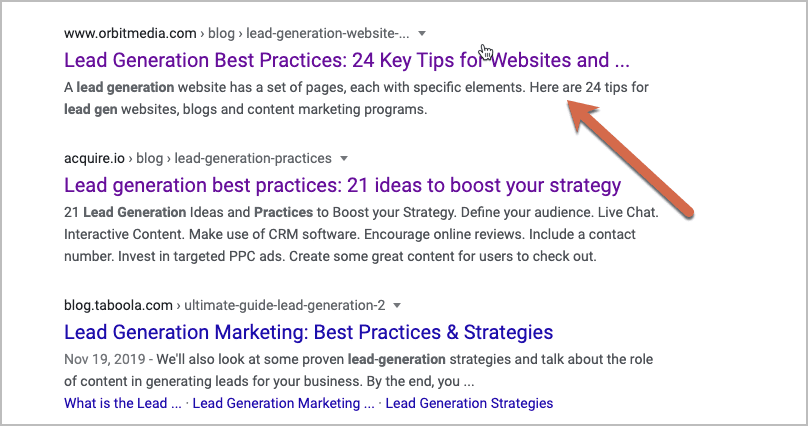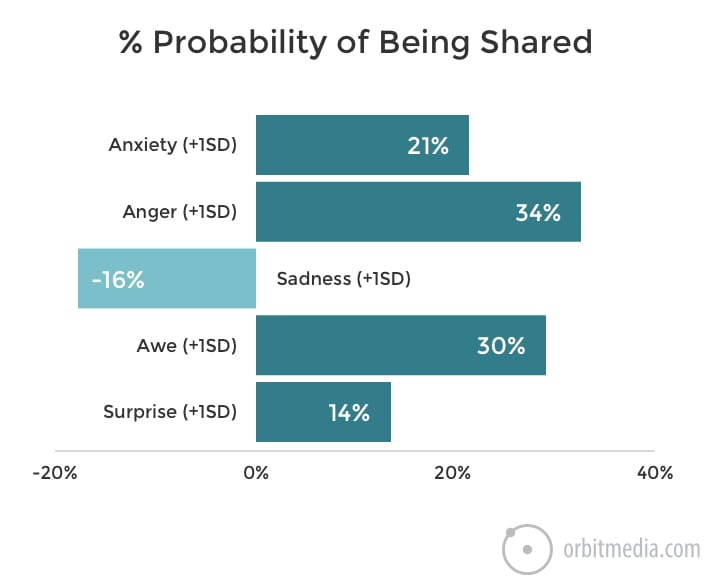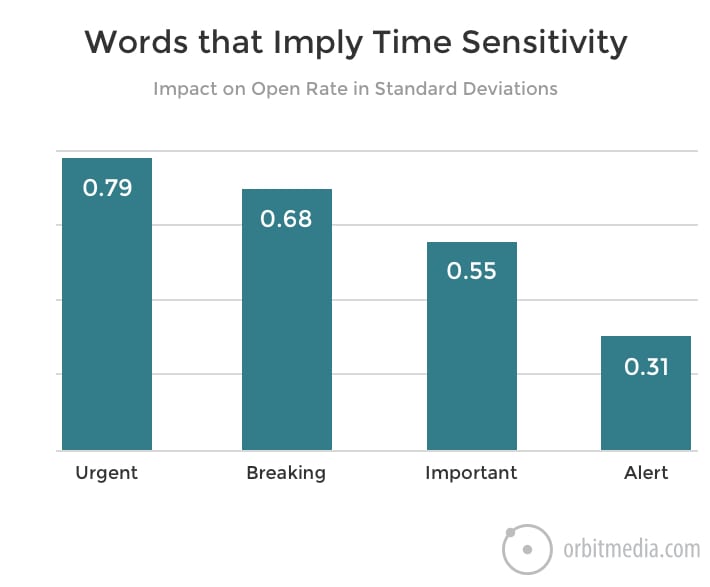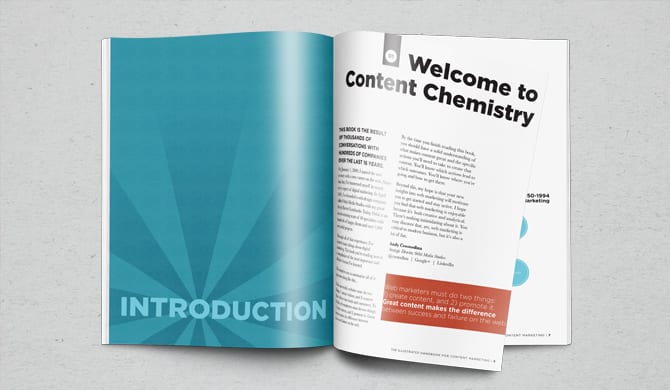You’ll use around 7,400 words today. At least, that’s the average according to research. If you’re a marketer, some of those words may make their way into pages on your website and posts in your social networks.
The words you choose matter. A lot.
Even though we choose words thousands of times per day, don’t do it unconsciously. When our words have marketing goals, we must choose them carefully, deliberately, and with traffic in mind. Because some words have the power to increase traffic.

Here’s a list of words that increase website traffic, both from search engines and social media and instructions for using them in your marketing.
Which words attract visitors who are ready to buy?
Search engines are used in all kinds of ways. But in marketing, there are really only two kinds of searchers and two kinds of keywords.
- Some people are researching their problems. Looking for answers to questions. “Why does my sink smell weird?”
- Other people know what they want. They’re looking for the specific product or service that will solve their problem. “sink repair Chicago”
It’s that second group that are ready to buy. If you can attract these visitors, they are more likely to take action than the first group. Targeting them isn’t difficult if you choose the right words for your webpages.
Here’s a list of 84 keywords that are used by people who are ready to buy (originally published by CloudLiving).
-
Alleviate
-
Avoid
-
bargain
-
Best
-
Bonus
-
[Brand Names]
-
Budget
-
Buy
-
Cheap
-
Cheapest
-
Code with
-
Compare
-
Comparison
-
Coupon
-
Cure
-
Deal with
-
Deals
-
Discount
-
Discount code
-
Easily
-
Eliminate
-
End
-
Fast
-
Fix
-
For children
-
For couples
-
For girls
-
For guys
-
For kids
-
For men
-
For newbies
-
For sale
-
For seniors
-
For students
-
For women
-
Gain
-
Get rid of
-
Guide (s)
-
Heal
-
How can I
-
How do I
-
How do you
-
How to
-
How to get rid of
-
How to make
-
Improve
-
Increase
-
Inexpensive
-
Learn
-
Low cost
-
Low priced
-
Method (s)
-
[Model Numbers]
-
Need
-
New
-
On sale
-
Order
-
Overcome
-
Plan (s)
-
Prevent
-
Program(s)
-
Protect
-
Purchase
-
Quick
-
Rebuild
-
Recover
-
Reduce
-
Reduced
-
Relieve
-
Remedy
-
Repair
-
Restore
-
Review
-
Reviews (s)
-
Scam
-
Software
-
Solution
-
Solve
-
Technique
-
That Works
-
Top
-
Training
-
Treat
-
Vs
Combine these words with your topic to create target keywords.
Next, use a Keyword Tool to see how many people are searching for the phrase. Even if the phrase gets a low volume of searches, the few people who do search for it are very targeted and very likely to take action.
Trust me, someone is searching for the phrase somewhere. If not today, soon. Write the page anyway.
Make the writing on the new page very detailed. Your goal is to make the best page on the internet for the phrase. Follow SEO best practices when using the keywords and make sure to link to the new page from older pages.
As Google evolves, search results are based less on specific phrases and based more on general meanings. This benefits websites that have sections of many pages relevant to the wider topic, all related and interlinked. Creating several pages using buyer keywords helps indicate that your site is relevant for the broader, semantic meaning.
Which words get people to click?
Ranking in search engines does not mean automatic traffic. People who search still have to click! They decide to click (or not) based on the “snippet” or listing in the search results.

Snippets are generally made up of a link with a few lines of black text below. Although there are all kinds of things that appear in snippets these days, in most cases the link is the title tag of the web page and the black text is the meta description of the page.
The snippet either convinces them to click …or it doesn’t.
These words get people to click on your snippet:
- How to
- [List-related numbers]
- Free
- You
- Tips
- Blog post
- Why
- Best
- Tricks
- Great
To improve click through rates from search engines to your website, use these words in your title tags and meta descriptions.
PRO TIP: Remember, title tags should be no more than 55 characters in length and meta descriptions should be no longer than 155 characters. Use this content checklist if you need more help.
Which headline words get people to share?
Iris Shoor and her team analyzed 100 blogs and thousands of headlines to find which words generated the most sharing. Not surprisingly, she found that headlines with numbers get shared the most, especially when used as digits, not spelled with letters.
Also, headlines with big numbers get shared more. The headline of this post is an example!
These are the words that appeared in the headlines of the most viral posts:
- Smart
- Surprising
- Science
- History
- Hacks (hacking, hackers and “life hack” related topics)
- Huge / Big
- Critical
Shoor also uncovered the power of negative words. Posts that framed the topic from the darker perspective tend to get shared much more often:
- Kill
- Fear
- Dark
- Bleeding
- War
Why? Because people have a natural bias to avoid loss, so negative words quickly grab our attention. Using fear and loss aversion is a well-researched aspect of neuromarketing.
So a headline such as “How to Keep Your Plumbing Happy” won’t likely generate as much traffic as “11 Things That Will Instantly Kill Your Garbage Disposal”
Fear not! It’s not necessarily cynical to use negative words in marketing. It’s often just a way to empathize with your readers. Your audience has pain points and using words that describe their problems is a useful way to connect.
Positive or negative, words that evoke strong emotions will be shared more often.

(source)
Which words get people to retweet?
Social media scientist Dan Zarella analyzed 10,000 tweets to discover the words that appear most often in re-tweets. He came up with the following list.
These are the words that tend to get shared on Twitter.
- You
- Please
- Retweet
- Post
- Blog
- Social
- Free
- Media
- Help
- Please Retweet
- Great
- Social Media
- 10
- Follow
- How to
- Top
- Blog Post
- Check Out
- New Blog Post
Notice the words “please” and “retweet” make this list at numbers three, four and eleven, showing the power of calls to action. Want people to share something? Ask them politely!
Note: Zarella’s findings actually conflict with Shoor’s research. Takipi found that the words “you” and “how to” didn’t have an effect on sharing. But Zarella was researching Tweets and Shoor was researching headlines. Possibly, the ideal words for a tweet are not necessarily the ideal words for the actual headline on the page.
Which subject line words get people to open emails?
A MailChimp study analyzed the effect of word choice in subject lines on email open rates. The data covers personalization, capitalization and difference across industries.
One of the most dramatic findings relates to words that indicate urgency. Take a look:

Just as emotions can be triggered by negative words, some words trigger the loss aversion bias in a different way. These words tell your subscribers that the information in the email is time-sensitive and that by ignoring the email, they may miss out.
- Urgent
- Breaking
- Important
- Alert
If your email is relevant to the moment, let your subscribers know by using these words in the subject line.
Bonus: Which words get people to buy?
Driving traffic is only half the battle. Getting visitors to take action once they’re on your site is the other half. And yes, words are a factor here too. In an excellent post on Copyblogger by Gregory Ciotti, these are the five most persuasive words in the English language:
- You
- Free
- Because
- Instantly
- New
Ciotti recommends using these words carefully. Don’t just make everything on your site new, free, and instant. If you understand the psychology behind these words, you’ll inspire more of those new visitors to become leads, subscribers, followers, and customers.
Recommended: Increase Blog Traffic by Nadya Khoja on Venngage.
Got a few words for us? Please instantly leave 10 huge important comments and best low cost tips below…




